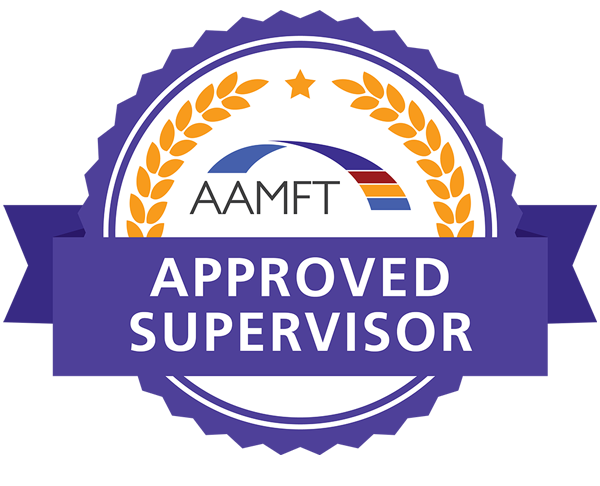Frequently Asked Questions
We have done our best to provide answers to the most frequently asked questions, but should you require further information, please contact us for assistance.
I am primarily trained as a Marriage & Family Supervisor using Experiential-Symbolic Supervision. This approach is ground in family systems work – both for the supervisee and their clients. Bringing awareness to one’s own patterns that influence professional patterns is valuable in enhancing skills to help others.
Additional training in Reflective Supervision, this modality is to help clinicians reflect upon their own experiences that occur in therapy sessions. Professional reflection enhances understanding the processes happening then & there in the therapy relationship.
For the needs to meet with a clinical supervisor for direct supervision, yes, all these professional sessions will count towards the supervision for licensure.
Once hour requirements are met, please be prepared to provide all related direct supervision, direct client hours, and all “other” professional hours that the therapist tracks.
The use of consultation helps a professional open their lens to allow the bigger picture in when feeling stuck with a client and their progress. Having professional consultation to enhance the therapeutic connection with clients, and thus, their progress is the goal of consultation. Gaining feedback and perspective allows for professional growth and an increase in capacity to meet your own professional goals.
50 minutes on the topic of the therapist’s choice.
Sessions can be an extensive exploration of a single case, or a more targeted approach to multiple similar cases (i.e.: suicidal ideation, safety planning, trauma, diagnostics, etc.), or consultations focusing on a specific theme found across several cases.
Practice enhancements, developing training content, becoming a supervisor yourself, are examples of the different areas for ongoing professional consultation. There is always a value to setting aside time to grow your practice in the way you want it to work for you.
Each therapist or professional sets their own goals, and it is the role of the supervisor to help them meet their own goals through consultation.
At the needs of the supervisee.
Maximum frequency for clinical supervision for licensure may be as frequent as twice per week, and no less than once per month.
Consultation and supervision (not towards licensure) can be set at any frequency a consultee or supervisee desires.
Request a Callback
If you’d like to speak with one of our professionals, please provide your phone number and we’ll get in touch soon.

